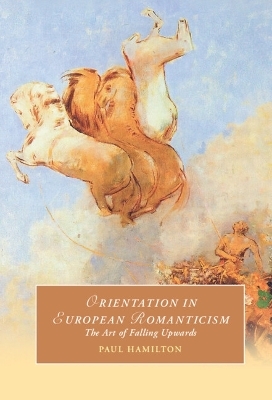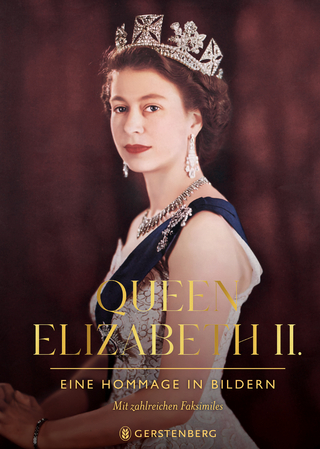
Orientation in European Romanticism
Cambridge University Press (Verlag)
978-1-009-26823-3 (ISBN)
Exploring the experiments in individual and national self-consciousness conducted during the Romantic period, this essential comparative study of European literature, philosophy and politics makes original and often surprising connections and contrasts to reveal how personal and social identities were re-orientated and disorientated from the French Revolution onwards. Reviving a contested moment in the history of aesthetic theory, this study shows how the growing awareness of irresolution in Kant's third Kritik allowed Romantic writers to put the aesthetic to radical uses not envisaged by its parent philosophy. It also recounts how they would go on to force philosophy to revise received notions of authority, empowering women and subordinated ethnic groups to re-orientate existing hierarchies. The sheer range and variety of writers covered is testament both to the breadth of writing that Kant's philosophy so rashly legitimated and to the wider importance of philosophy to the understanding of Romantic literature.
Paul Hamilton is Professor of English at Queen Mary University of London. He has been Visiting Fellow at Ludwig Maximilian University of Munich and Visiting Professor at La Sapienza University of Rome. His book Metaromanticism: Aesthetics, Literature, Theory (2003) won the Jean-Pierre Barricelli book prize. His most recent books are, as editor, The Oxford handbook of European Romanticism (2016) and, as author, Realpoetik: European Romanticism and Literary Politics (2013).
Part I. Disorientating Kant: 1. Introduction: sublimity and abjection; 2. Kleist and the Kant-crisis; 3. Hölderlin and the philosophers; Part II. The Uses of Abjection: 4. The feminist humanism of Felicia Hemans: the poetics of Records of Woman (1828); 5. Thomas Moore and the national lyric; 6. Ugo Foscolo's literary hypocrisy; Part III. Optimism and Pessimism: 7. Balzac's comic pessimism; 8. George Sand's optimism; Part IV. Romancing the Modern: 9. Retrospect: Rilke translates Leopardi.
| Erscheinungsdatum | 12.10.2022 |
|---|---|
| Reihe/Serie | Cambridge Studies in Romanticism |
| Zusatzinfo | Worked examples or Exercises |
| Verlagsort | Cambridge |
| Sprache | englisch |
| Maße | 159 x 235 mm |
| Gewicht | 620 g |
| Themenwelt | Geisteswissenschaften ► Geschichte ► Regional- / Ländergeschichte |
| Geisteswissenschaften ► Philosophie ► Geschichte der Philosophie | |
| Geisteswissenschaften ► Philosophie ► Philosophie der Neuzeit | |
| Geisteswissenschaften ► Sprach- / Literaturwissenschaft ► Anglistik / Amerikanistik | |
| Geisteswissenschaften ► Sprach- / Literaturwissenschaft ► Literaturgeschichte | |
| Sozialwissenschaften | |
| ISBN-10 | 1-009-26823-6 / 1009268236 |
| ISBN-13 | 978-1-009-26823-3 / 9781009268233 |
| Zustand | Neuware |
| Informationen gemäß Produktsicherheitsverordnung (GPSR) | |
| Haben Sie eine Frage zum Produkt? |
aus dem Bereich


